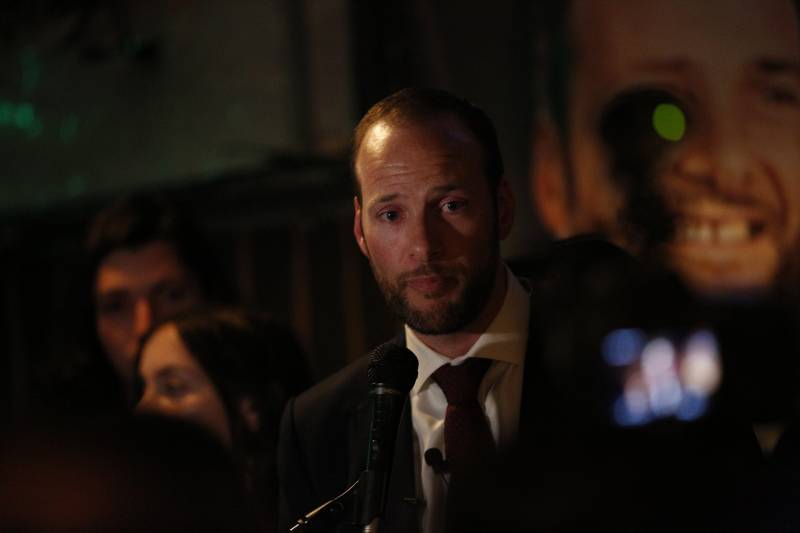San Francisco’s new district attorney, Chesa Boudin — a former public defender who has pledged to overhaul the way the county approaches public safety — plans to institute a new policy banning the use of money bail by county prosecutors.
“We are working on the details of our money bail policy. We hope to be rolling it out next week,” he told KQED on Thursday. “What you can expect in broad terms is a prohibition on seeking money bail at arraignment and a system that focuses on risk rather than wealth.”
As a public defender, Boudin led a legal challenge to the bail system that helped spur a broader conversation about the fairness of making people pay money to secure release from jail before they stand trial.

